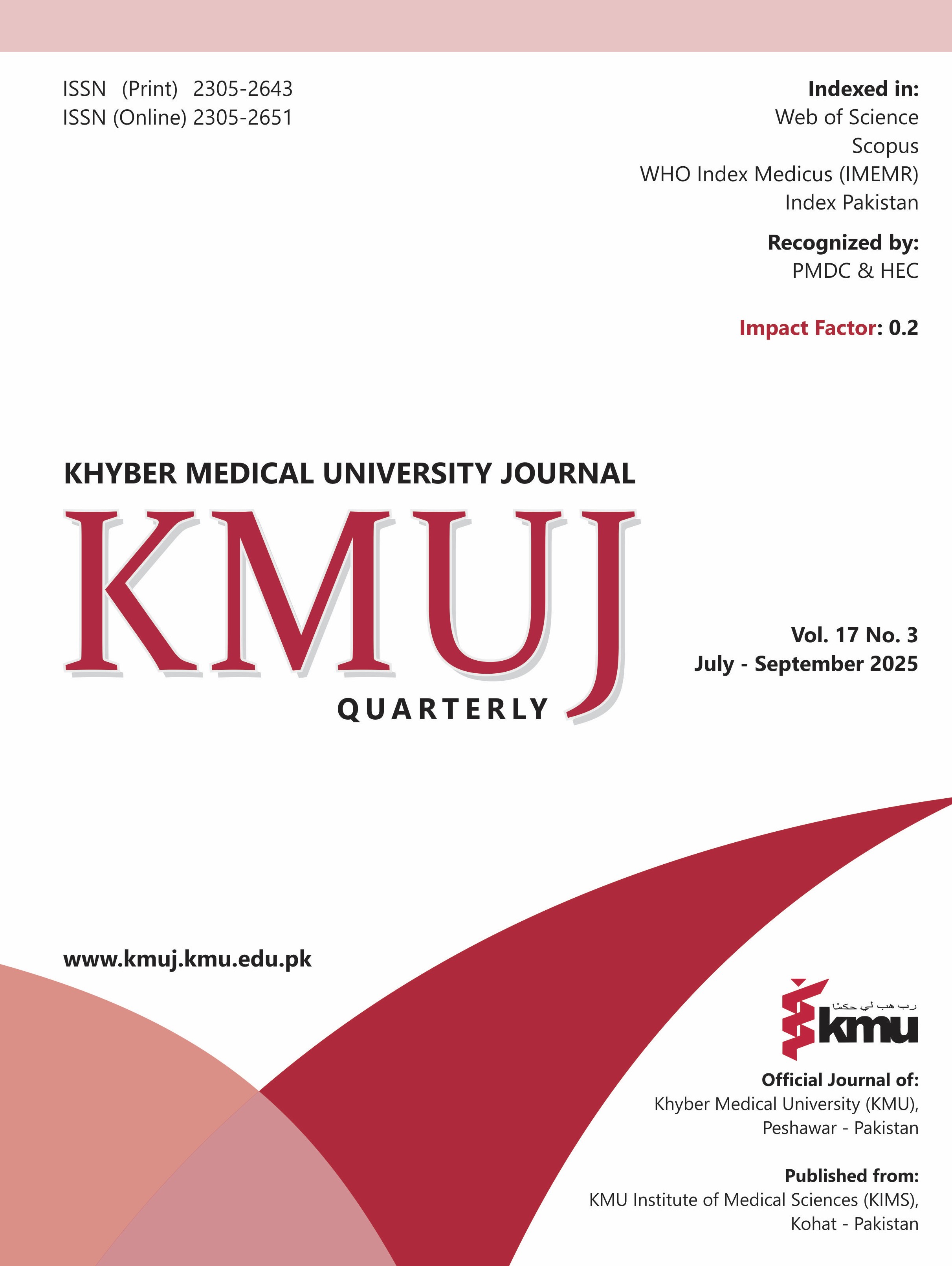Alarming level of formalin contamination in bovine milk supplies in Khyber Pakhtunkhwa, Pakistan
Main Article Content
Abstract
Dear Editor,
I wish to draw urgent attention to the growing and deeply concerning practice of adulterating bovine milk with formalin (formaldehyde) in Khyber Pakhtunkhwa (KPK), Pakistan. As milk is a vital source of nutrition, particularly for children, its contamination with this chemical poses serious risks to food safety and public health, while also underscoring deficiencies in regulatory oversight.
According to recent surveillance data from the Khyber Pakhtunkhwa Food Safety and Halal Food Authority (FS&HFA), formalin was detected in 2.91% of tested milk samples, while nearly 93% of samples were found to be substandard, adulterated, or otherwise unsafe for human consumption.1 Although the percentage of formalin-positive samples may appear small, its toxicological implications are severe, as even trace amounts pose significant health risks.
Drinking milk that contains formalin affects the human body negatively in that it can cause damage to internal organs, lead to neurological disorders, and make the body prone to cancer. Corrosive injuries are usually most pronounced in the pharyngeal mucosa, epiglottis and esophagus. Systemic effects include metabolic acidosis, CNS depression and coma, respiratory distress, and renal failure.2 The dangers are particularly worrisome for the children, who consume milk daily as part of their nutritional requirements. The intentional addition of such a toxic preservative not only threatens individual health but also undermines consumer confidence in one of the most essential dietary staples.
Scientific evidence further supports these alarming findings. A cross-sectional study from Peshawar in 2018 revealed that 5.7% of milk samples contained formalin,3 while more recent data from 2022 confirmed the presence of formalin in milk collected from Mardan district.4 Together, these reports suggest a persistent and possibly expanding pattern of malpractice in dairy handling and distribution across KPK.
The detection of formalin in milk is not merely a technical violation of food safety standards, it represents an unlawful, unethical, and dangerous adulteration that compromises public health. Milk is meant to deliver essential proteins, fats, vitamins, and minerals, but its contamination with formalin destroys its nutritional quality while introducing significant toxic risk.
To address this urgent issue, we appeal to regulatory agencies, including the Pakistan Food Authority and FS&HFA, to implement a coordinated and robust response. This should involve:
- Routine and random sampling of milk across urban and rural districts to monitor formalin contamination at all levels of the supply chain.
- Enforcement of strict legal consequences against suppliers, distributors, and dairy farmers found guilty of adulteration.
- Comprehensive training and awareness programs for dairy farmers on safe milk production and handling practices.
- Development of a sustainable monitoring and surveillance program, including laboratory capacity-building, to ensure long-term adherence to food safety standards.
Public health protection must remain the foremost priority. Contaminated milk not only threatens physical well-being but also erodes societal trust in food systems. The authorities must adopt a zero-tolerance approach toward milk adulteration to ensure that consumers, particularly vulnerable populations such as children, are protected from the devastating effects of formalin exposure.
In conclusion, the evidence indicates that formalin contamination in milk is not an isolated problem but a systemic challenge requiring urgent, science-driven, and regulatory interventions. It is critical for policymakers, enforcement bodies, and health professionals to collaborate in safeguarding the nutritional and health security of the people of Khyber Pakhtunkhwa.
Article Details

This work is licensed under a Creative Commons Attribution 4.0 International License.
Work published in KMUJ is licensed under a
Creative Commons Attribution 4.0 License
Authors are permitted and encouraged to post their work online (e.g., in institutional repositories or on their website) prior to and during the submission process, as it can lead to productive exchanges, as well as earlier and greater citation of published work.
(e.g., in institutional repositories or on their website) prior to and during the submission process, as it can lead to productive exchanges, as well as earlier and greater citation of published work.
References
1. Khyber Pakhtunkhwa Food Safety and Halal Food Authority. Milk Adulteration Survey Report. (july 28,2024). [Accessed on: August 20, 2025]. Available from URL: KPFSHFA report reveals 93% of milk in KP injurious to health
2. Center of Disease Control and Prevention (CDC). Medical management guidelines for formaldehyde. [Accessed on: August 20, 2025]. Available from URL: https://wwwn.cdc.gov/TSP/MMG/MMGDetails
3. Shafqat Ullah, Mahsood N, Imtiaz A, Hamza A. Bovine milk; chemical analysis of raw bovine milk in district Peshawar. Professional Med J 2018; 25(5):685-690. https://doi.org/10.29309/TPMJ/18.4463
4. Nawaz T, Ur Rehman Z, Ullah R, Ahmed N, Mahmoud Sayed S. Physicochemical and adulteration study of fresh milk collected from different locations in Pakistan. Saudi J Biol Sci 2022;29(12):103449. https://doi.org/10.1016/j.sjbs.2022.103449
